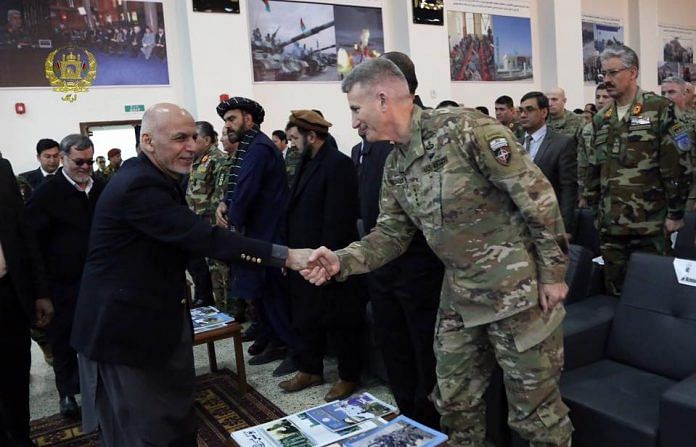WILL TRUMP SEND MORE TROOPS TO AFGHANISTAN?
The war in Afghanistan did not come up much during the U.S. presidential campaign, but it now threatens Donald Trump’s slogan of putting “America first”.
Officials are recommending sending several thousand additional troops to Afghanistan to try to break a military stalemate in the 15-year war there, and pressure the Taliban to negotiate.
Deploying more troops would cost billions of dollars, and there is no guarantee of a clear win. The U.S. failed to produce successful negotiations even when it had 100,000 troops there. It would also reverse moves by Barack Obama to steadily limit the U.S. military role by setting a deadline.
Military officers say deadlines are counterproductive because they allow adversaries to wait it out instead of forcing them to the negotiating table.
ASIA IS GROWING OLD BEFORE GROWING RICH
After enjoying substantial demographic dividends in the past decades, the growing number of elderly in Asia is set to create a demographic “tax” on growth, the IMF said in its report for the Asia-Pacific region.
IMF called on Asian economies to learn from Japan’s experience and act early to cope with rapidly aging populations, warning that parts of the region risk “getting old before becoming rich”.
The population growth rate will fall to zero for Asia by 2050 and the share of working-age people — now at its peak — will decline. The share of the population aged 65 and older will reach close to two-and-a-half times the current level by 2050. This could subtract 0.1 percentage point from annual global growth.
Preventive measures include boosting female and elderly labour force participation, and revamping social safety nets.
THE TERM “ALTERNATIVE FACTS” MAKES IT TO THE UN
The reports about a new wave of killing in the Philippines’ war on drugs are “alternative facts”, said the country’s official at the UN Human Rights Council.
Alan Peter Cayetano, an ally of the controversial President Rodrigo Duterte, said that “there is a deliberate attempt to include all homicides as extrajudicial killings or killings related to the campaign against criminality and illegal drugs, and that these are state-sponsored, which is simply not true”.
Since Duterte came to power 10 months ago, there have been 9,432 homicide cases, including 2,692 deaths from “presumed legitimate law enforcement operations”. Authorities say police have only killed in self-defence during anti-drugs operations.
Human rights groups say the killings were carried out by police or hired assassins. Cayetano told the council public opinion had been swayed by “alternative facts” spread by critics of Duterte.
OLD PEOPLE ON MT. EVEREST
Should old people not climb Mt. Everest? After the death of an 85-year-old man at Everest this weekend — the second fatality in the past week — Nepal’s biggest alpine association wants to push the government to implement an age limit on who can climb the world’s tallest mountain.
A ban on anyone under 16 climbing is already in place.
Rules requiring climbers to have ascended a peak at least 21,000-ft high in the past are yet to be implemented. Local communities who depend on revenue from overseas climbers have opposed it.
Nepal has issued about 376 permits to foreigners this year, the highest number since the 1950s, and many people whose climbs were postponed after deadly earthquakes in past years are expected to return.
GOOGLE MAPS TO ZOOM IN ON OLD BORDER DISPUTES
Pakistan and Afghanistan plan to use Google Maps to help settle an old border dispute.
Official Afghan maps reflect the so-called Durand Line — drawn when the British colonizers left the region in 1947 — but many Afghan nationalists believe the true border lies at the river Indus that runs though Pakistan.
Afghanistan and Pakistan have recently engaged in a hostile exchange about border violations and militants. Last year, Pakistan began trying to harden the traditionally soft border with Afghanistan through trenching and fencing. Kabul complained to the UN Security Council. Pakistan said that all the activities are on its own side of the Durand Line and is meant to “stop terrorists from crossing the border”.
Last week, at least eight civilians were killed on both sides in fighting that began when a Pakistani census team visited disputed villages along the southern border.
Picture Courtesy: Facebook @ashrafghani.af



